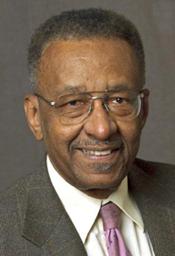Recently by Walter E. Williams: Understanding Liberals
William J. McGee, the consumer advocate on the Department of Transportation’s Future of Aviation Advisory Committee wrote “Forcing the F.A.A. to Fly Blind” in The New York Times (April 9, 2011), where he laments Congress’ cut in the FAA budget, saying, “A $4 billion cut will necessarily reduce the work force further. And it’s hard to imagine this will not diminish safety.” Mr. McGee suggests there will be shortcuts in aircraft maintenance.
Here are a few facts and then a question. Each Boeing 747 costs $317 million, its 777 goes for $284 million and its 737 sells for $80 million. Airbus’ giant 555-plus passenger A380 sells for $375 million. Here’s a true or false statement: If it weren’t for the FAA, airline company CEOs would not take the necessary measures to ensure that their aircraft took off and landed safely.
I’d say the statement is false. Even if CEOs didn’t give a hoot about passengers, I’m betting that they do care, without FAA edicts, whether billions of dollars worth of aircraft landed and took off safely, and they will spend enough on maintenance to ensure that.
Mr. McGee might say that without the FAA mandates, airlines would spend less on safety. Whether we acknowledge it or not, there is such a thing as being too safe, as well as being not safe enough. Typically, it’s only the effects of not being safe enough that are visible. There are the crashes, injuries and fatalities.
The effects of being over-safe are less visible. They are revealed when we recognize that too many safety measures such as unnecessary maintenance, early parts replacements and inspections costs money. If airline companies are to remain profitable and in business, passenger fares must reflect such costs. Because of higher fares, some families will opt to drive to their destination. Highway travel is not nearly as safe as air travel. Therefore, some highway fatalities might be because higher fares have forced people to drive instead of fly.
Witnessing a highway fatality, few would attribute it to FAA edicts. By the way, FAA officials have an incentive to err on the side of being over-safe because the victims of their policy are invisible and the agency suffers no public embarrassment and blame.
Speaking of safety, too many of us buy into the notions like “You can never be too safe” and “If it will save one life, it’s worth it.” Let’s put this in perspective. There’s a non-zero probability that our automobile hydraulic brake line system has a just-about-ready-to-fracture crack that could cause a serious accident that could be easily prevented by a routine daily inspection. Yet how many of us bother to inspect our car’s hydraulic brake lines before we start the engine and head off to work? Doing so would be safer than simply assuming that the lines were intact. After all, NASA doesn’t act so “irresponsibly.” Prior to launch, they make no safety assumptions. They go through a detailed inspection of all systems, taking nothing for granted. As far as our cars are concerned, we decide that such a level of safety is not worth it.
 How about the frequently heard claim “If it will save just one life, it’s worth it”? As a generality, it, too, is nonsense. According to 2009 data from the Department of Transportation’s National Highway Traffic Safety Administration, 33,808 people died in car crashes. I’m guessing that if Congress would mandate and enforce a 5 or 10 mph speed limit, at least 30,000 American lives would be saved.
How about the frequently heard claim “If it will save just one life, it’s worth it”? As a generality, it, too, is nonsense. According to 2009 data from the Department of Transportation’s National Highway Traffic Safety Administration, 33,808 people died in car crashes. I’m guessing that if Congress would mandate and enforce a 5 or 10 mph speed limit, at least 30,000 American lives would be saved.
How many people would support such a mandate? “Williams,” you say, “that’s a ridiculous and impractical proposal!” I’d agree but put it more truthfully, though politically incorrect. People wouldn’t support such a congressional mandate because those 30,000 lives that would be saved just aren’t worth all the inconvenience and costs we have to bear by having to drive at 5 or 10 mph.
Walter E. Williams is the John M. Olin distinguished professor of economics at George Mason University, and a nationally syndicated columnist. To find out more about Walter E. Williams and read features by other Creators Syndicate columnists and cartoonists, visit the Creators Syndicate web page.




